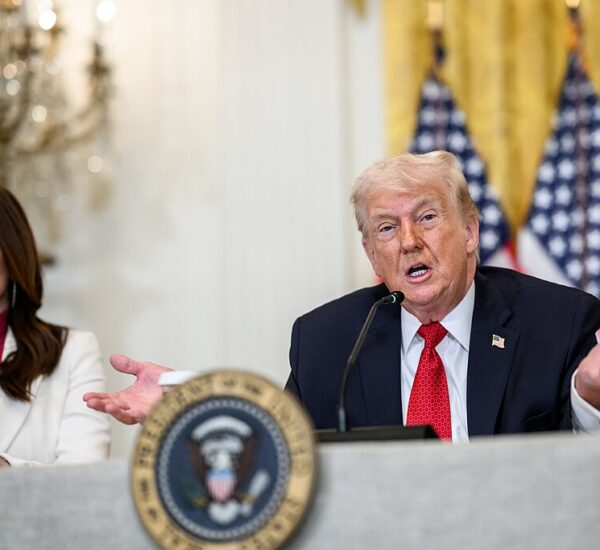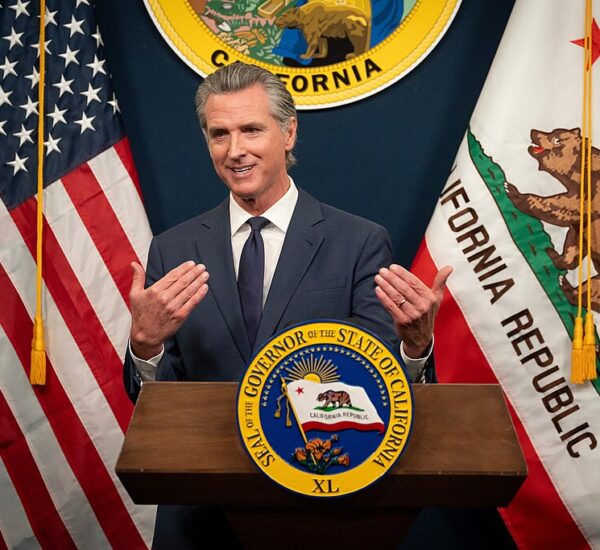Conservatives Furious With The GOP?
Washington, D.C. — The Republican Party is facing a critical crossroads as House conservatives clash over how to fund President Donald J. Trump’s bold America First domestic agenda. At the heart of the debate? A proposed $1.5 trillion in federal spending cuts that have ignited tensions between fiscal hawks and moderate Republicans—with major programs like Medicaid hanging in the balance.
Trump’s Budget Blueprint Hits GOP Roadblock
Despite narrowly passing a budget framework, the GOP conference is in turmoil. The internal battle threatens to derail core Trump policies, including:
- Historic middle-class tax cuts
- Restoring American energy independence
- Securing our southern border
- Cutting reckless government spending
The week leading up to the vote saw Freedom Caucus conservatives demand hard guarantees on spending cuts. Their demands forced GOP leadership to delay a scheduled vote—leaving many Republicans frustrated and uncertain about the future of the party’s unified agenda.
“These guys get all the attention,” said one House Republican, speaking on background. “Meanwhile, we’re the ones taking real risks in swing districts.”
The $1.5 Trillion Question: Are Cuts Coming to Medicaid?
The House resolution orders $1.5 trillion in cuts, including a controversial $880 billion from the House Energy and Commerce Committee—which oversees Medicaid. That figure raised alarms across the aisle. Even the Congressional Budget Office warned that level of savings is impossible without significant reductions to the widely used health care program.
Conservative lawmakers insist the cuts are necessary to curb out-of-control spending and avoid a national debt crisis. But moderate Republicans fear political blowback if constituents see benefits slashed.
“We’re trying to protect taxpayers and families who rely on these programs,” said Rep. Nicole Malliotakis (R-N.Y.). “The Speaker made it clear—nothing in this resolution is binding.”
Freedom Caucus vs. GOP Moderates: A Battle for the Soul of the Party
The tension reached a boiling point when Rep. Derrick Van Orden (R-Wis.) briefly voted “no” in protest before flipping to “yes.” He called it a “shot over the bow” aimed squarely at the Freedom Caucus.
“I’m going to actively oppose everything the Freedom Caucus pushes until they come to their senses,” Van Orden stated. “What they’re doing is silencing the voices of my constituents, and I won’t stand for it.”
This type of intra-party warfare isn’t just theater. It could determine whether President Trump’s policies succeed—or stall under party infighting.
Leadership Walks a Tightrope: Can Mike Johnson Keep the GOP Together?
Speaker Mike Johnson (R-La.) is under fire from both sides. Some conservatives accuse him of appeasing moderates, while others believe he caved to the Freedom Caucus. In the final hours before the vote, moderates huddled with Johnson and secured verbal assurances that the $1.5 trillion figure is aspirational, not mandatory.
“At the end of the day, we’ll negotiate,” said Rep. Mike Lawler (R-N.Y.). “We’ll get smart savings across government and pass Trump’s tax cuts—preventing the largest tax hike in American history.”
Senate Budget Numbers Offer a Lifeline for Moderates
While the House is tasked with finding $1.5 trillion in cuts, the Senate is only directed to trim a mere $4 billion—providing a potential off-ramp for moderates seeking compromise. But conservatives remain skeptical.
“The only thing that matters is what’s on paper,” said Rep. Thomas Massie (R-Ky.). “If it’s not in the bill, it’s not happening. Period.”
The Freedom Caucus had sought to make the $1.5 trillion cut binding—even considering an amendment that would have sent the bill back to the Senate. Ultimately, they accepted a written commitment from Speaker Johnson and a joint press conference with Senate Majority Leader John Thune (R-S.D.), who expressed “ambition” to meet the House’s number—but stopped short of a promise.
🔥 Why This Story Matters to You
For patriotic Americans 50 and up, this battle is more than political posturing—it’s about the future of your retirement, the health programs you rely on, and the values of fiscal responsibility that built this nation.
President Trump is working to cut taxes, rein in wasteful spending, and secure America’s future. But internal resistance from within the GOP may jeopardize that mission. If Republicans can’t unite, Democrats and the deep state win—and American taxpayers lose.






